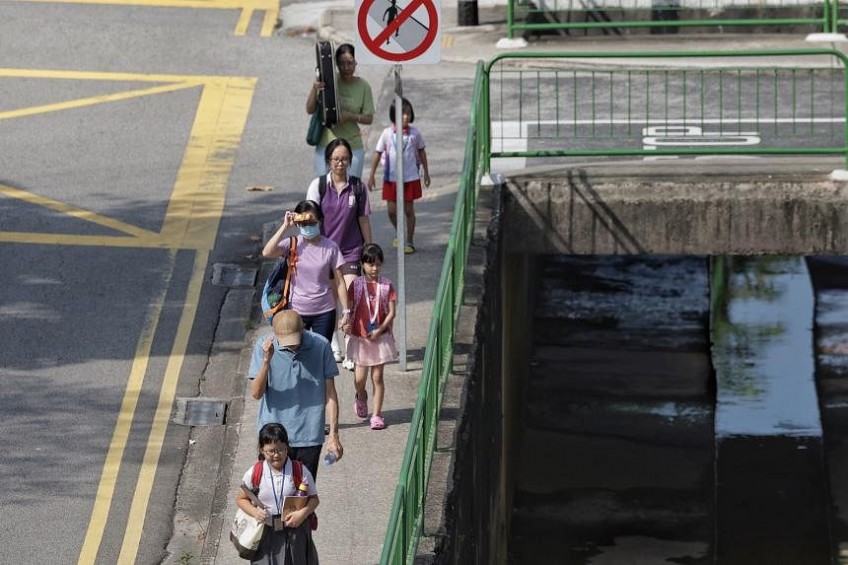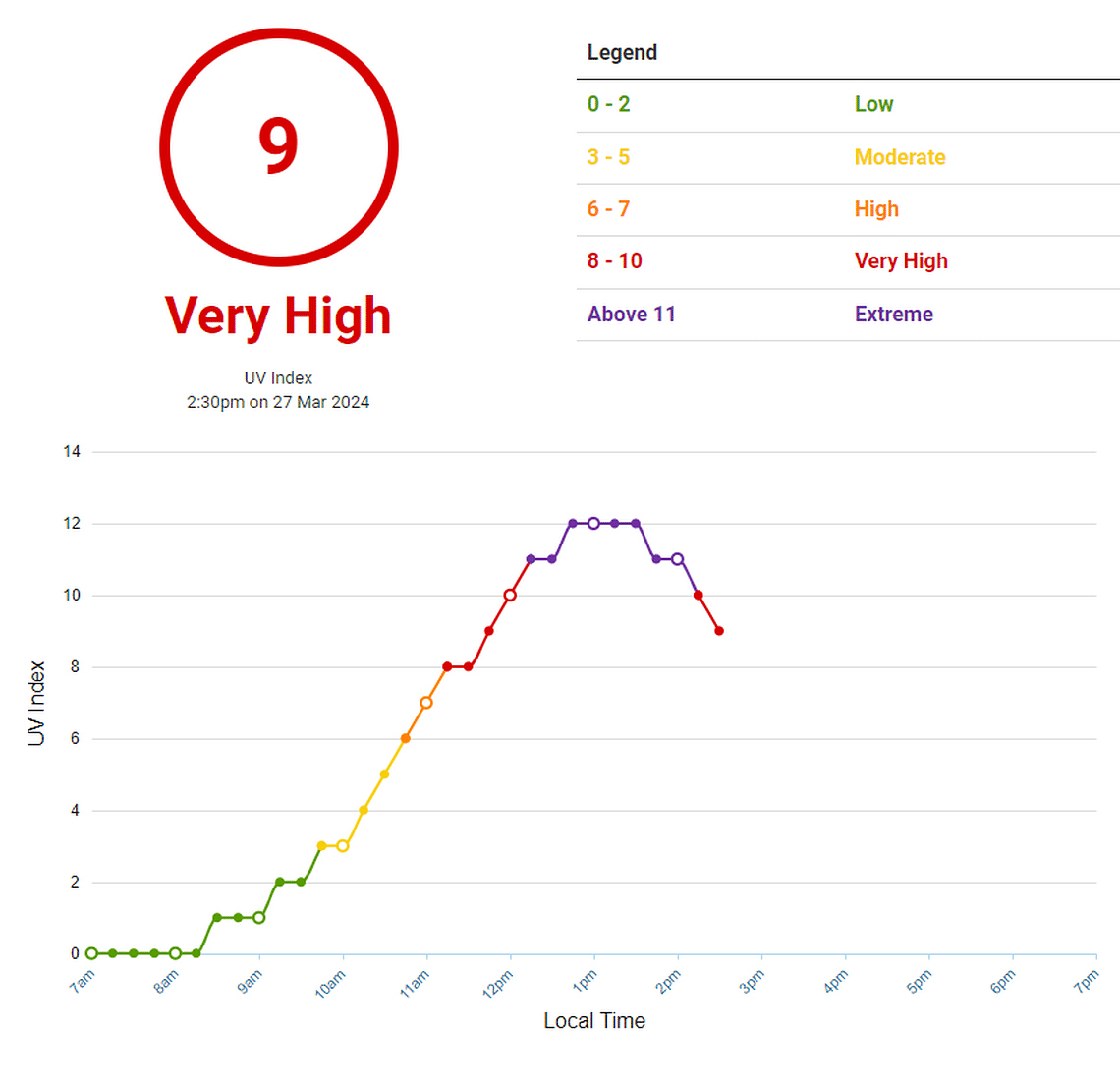Wear more sunscreen, keep umbrellas handy: UV index in Singapore hits extreme levels on March 27


SINGAPORE - Put on more sunscreen and keep umbrellas and hats handy, the National Environment Agency (NEA) has advised, as the ultraviolet (UV) index hit extreme levels on the afternoon of March 27.
The UV index in Singapore first entered the extreme band at about 12.15pm on Wednesday, with a reading of 11. It climbed to a high of 12 at about 1.15pm.
As at 2.45pm, the UV index reading had dropped to 10, but people are still advised to take extra protection against sunburn.
Temperatures were between 31.1 deg C and 35.7 deg C at around 2pm, with the highest recorded in Paya Lebar.?
UV index readings above 11 are considered extreme, while those between 8 and 10 are considered very high. When UV index readings are in either band, the NEA advises extra protection against sunburn.
The UV index describes the level of solar UV radiation at the earth’s surface, and the maximum reading is 15.
The higher the reading, the higher the possibility of harmful effects to the skin and eyes, NEA’s website stated.

Those who are out in the sun should take protective measures to guard from UV exposure by using umbrellas and wearing hats and sunglasses, NEA said in an advisory on its website. Those venturing outdoors should also slather on sunscreen of at least SPF 30 every two hours.
According to NEA, it is common for the UV index to reach very high and extreme levels between 11am and 3pm on a day with little cloud cover. The months of February, March, April and September tend to see the highest UV radiation.
The UV index is measured at the Changi Meteorological Station and reported hourly between 7am and 7pm.?
In its annual climate assessment report released on March 23, the Meteorological Service Singapore said 2024 could be even hotter than 2023, which was the fourth warmest year for the country.
2024 is predicted to be more sweltering due to the lingering effects of a climate phenomenon known as El Nino, which reached Singapore in the second half of 2023, and causes hotter and drier weather over South-east Asia.
This article was first published in The Straits Times. Permission required for reproduction.